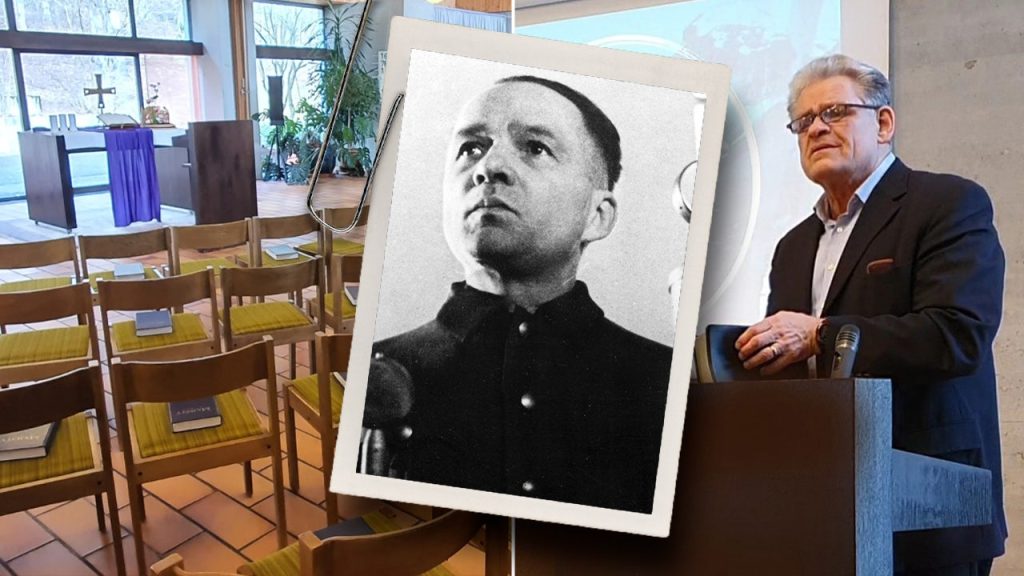Kai Höss, a pastor in Germany, carries a unique and heavy burden: he is the grandson of Rudolf Höss, the commandant of Auschwitz. Every Sunday, he preaches a message of salvation, forgiveness, and God’s grace, a stark contrast to the horrors orchestrated by his grandfather. This compelling juxtaposition forms the core of Höss’s life and ministry, driving him to confront antisemitism and share his story of redemption. His journey from a self-absorbed young professional to a man dedicated to reconciliation is a testament to the transformative power of faith.
Höss’s path to faith was unexpected. Raised in a secular home, he initially dismissed his grandmother’s Christian beliefs. He pursued a successful career in the hospitality industry, embracing a materialistic lifestyle. However, a medical emergency led him to a hospital bed and a Bible, which he initially resisted but eventually devoured. This encounter sparked a profound spiritual transformation, leading to his salvation in 1989. He describes this experience as God saving a “wretch” like him, highlighting the boundless nature of divine grace. This newfound faith became the driving force behind his commitment to address the dark legacy of his family’s past.
The weight of his grandfather’s actions was not something Höss readily embraced. He kept his family history secret, burdened by shame and the knowledge of his grandfather’s role in the Holocaust. However, his conversion to Christianity compelled him to confront this legacy. He began sharing his testimony, culminating in a powerful encounter at a U.S. military retreat. There, he met a Jewish military officer whose family had perished in Auschwitz. This encounter solidified Höss’s commitment to reconciliation and using his platform to speak out against antisemitism. It was a pivotal moment that transformed his shame into a call to action, driven by a desire to honor the memory of the victims and offer a message of hope.
Höss’s approach to combating antisemitism involves educating young people about the insidious nature of hate ideologies. He draws a direct line from the social Darwinism that fueled Nazi atrocities to the echo chambers of social media today. He explains how the Nazis twisted Darwin’s theory of evolution to justify their racist beliefs and actions, leading to the systematic extermination of millions. Höss warns against the dangers of uncritical consumption of information, particularly on platforms like TikTok, where short, emotionally charged clips can easily manipulate and indoctrinate. He encourages critical thinking and a deeper understanding of historical context to counter the simplistic and often biased narratives prevalent online. He emphasizes the importance of recognizing the humanity of others and resisting the dehumanization that fuels hatred and violence.
The recent surge in anti-Israel sentiment on college campuses, particularly following the Hamas attack on Israel, underscores the urgency of Höss’s message. He observes that much of this sentiment stems from emotional reactions fueled by incomplete or biased information. He points to the common chant, “From the river to the sea,” highlighting how many who use it lack a fundamental understanding of its meaning or the historical context of the conflict. Höss criticizes this emotional reactivity, emphasizing the need for nuanced understanding and critical engagement with complex issues. He argues that reducing individuals to labels based on their ethnicity or nationality ignores their inherent humanity and paves the way for prejudice and violence.
Höss’s journey of reconciliation includes a poignant visit to Auschwitz with his father, documented in the HBO film “The Commandant’s Shadow.” This trip marked a profound moment of confronting his family’s past and acknowledging the immense suffering inflicted by his grandfather. A particularly moving aspect of this journey was their meeting with Holocaust survivor Anita Lasker-Wallfisch. This encounter, filled with both pain and hope, underscored the importance of remembering the victims and working towards a future free from hatred. Höss’s commitment to sharing his story and speaking out against antisemitism is a powerful testament to the possibility of redemption and the enduring power of forgiveness. His upcoming address at a synagogue commemorating the 80th anniversary of Auschwitz’s liberation signifies his ongoing dedication to this vital work.


